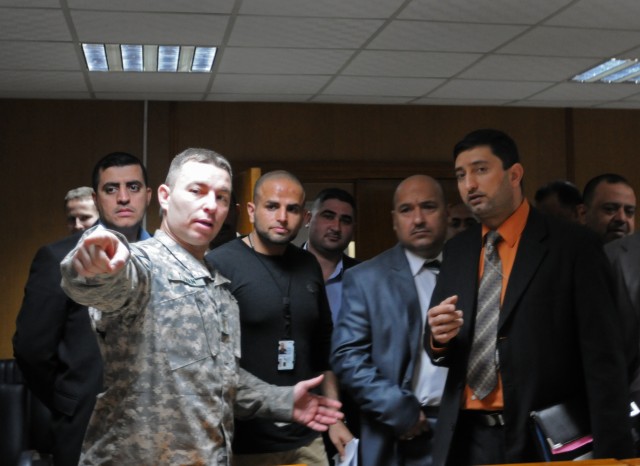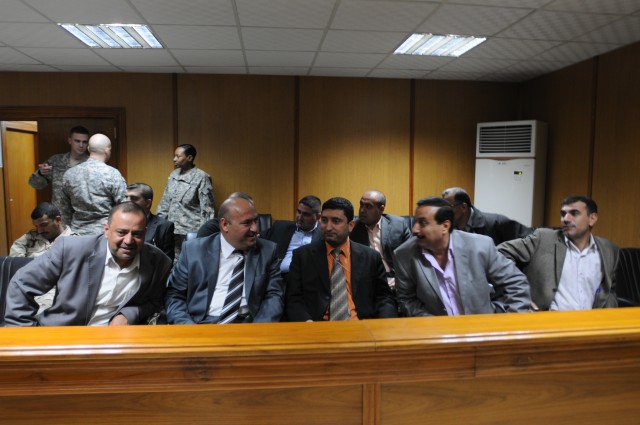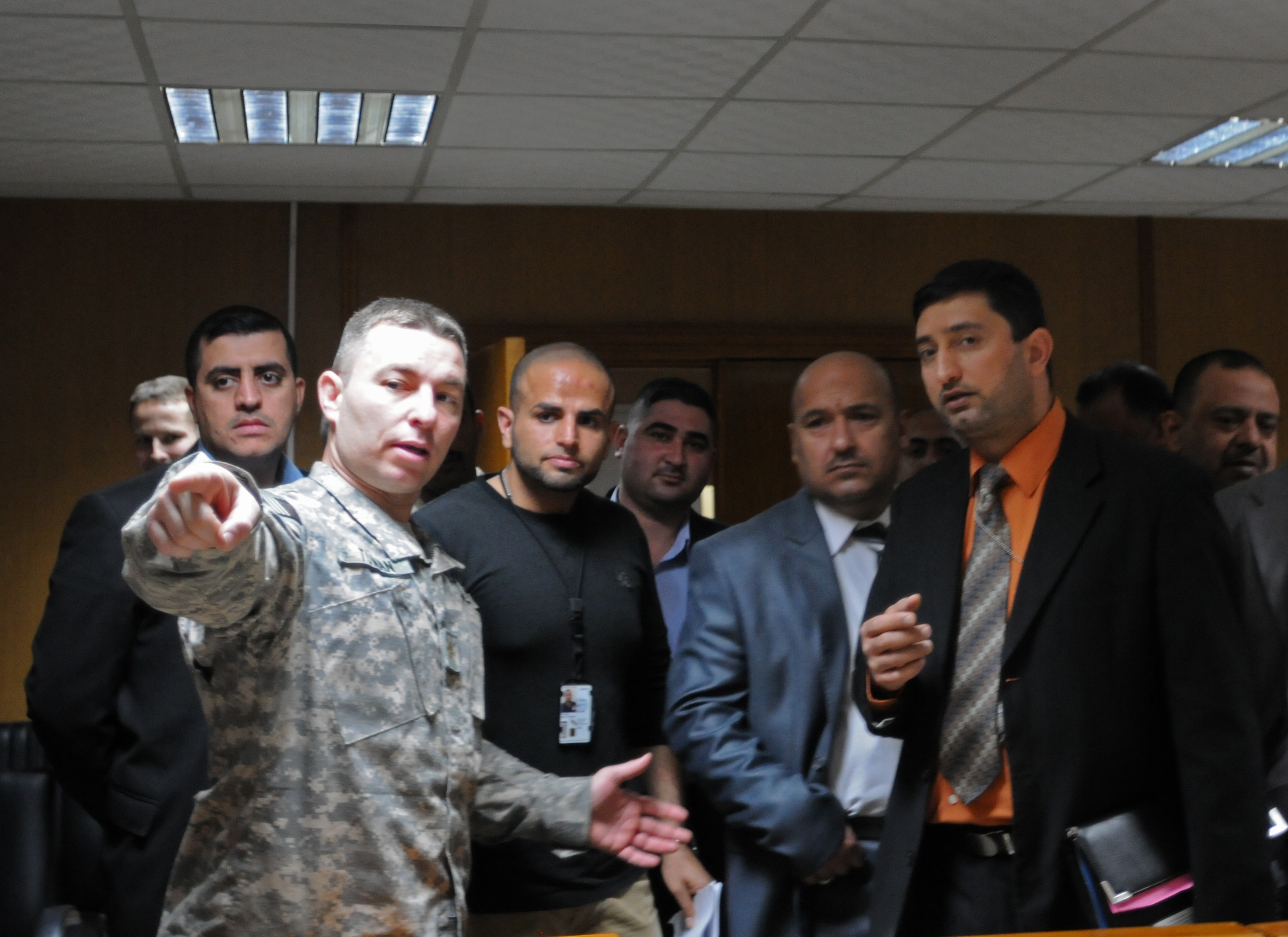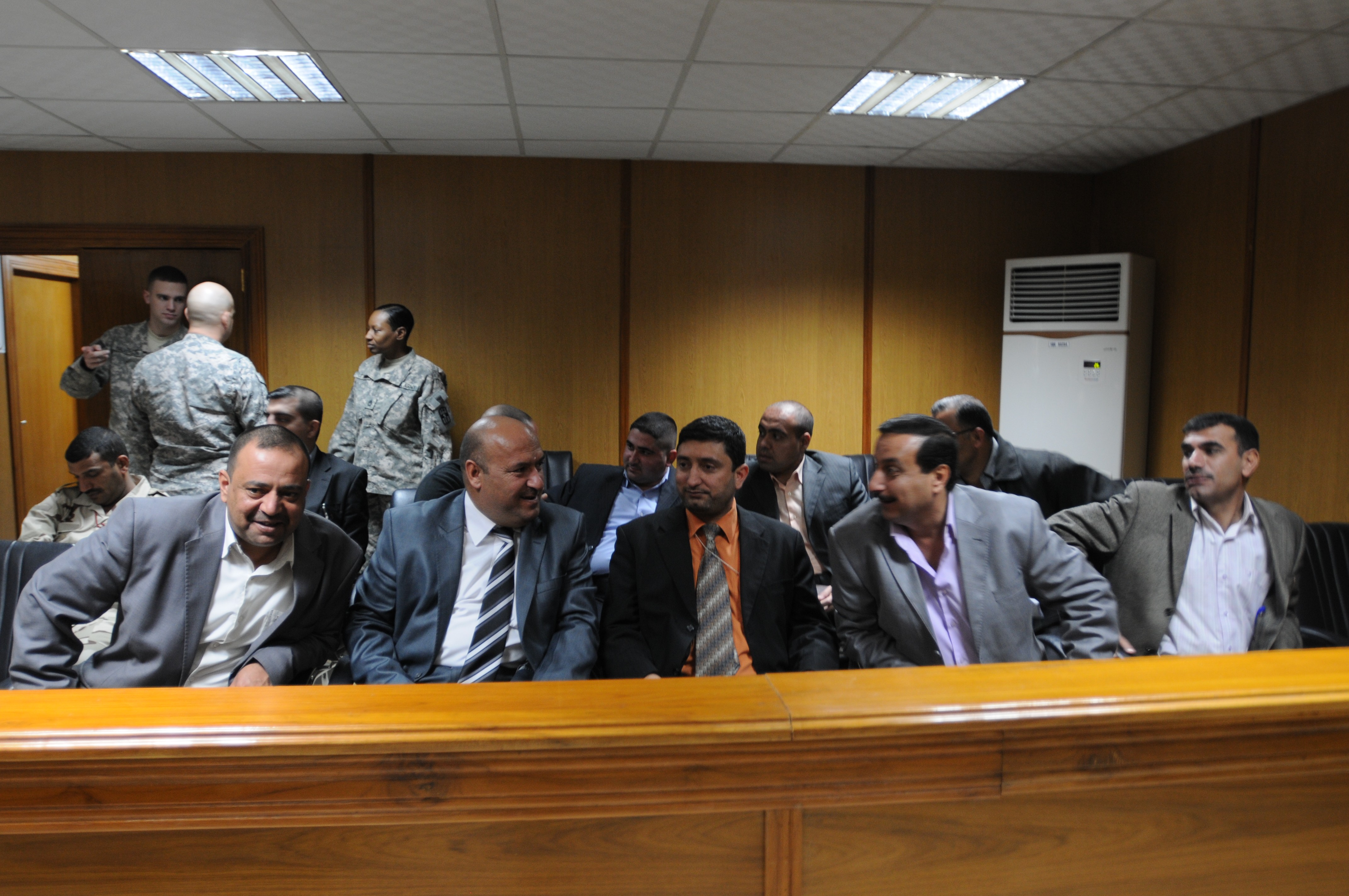CAMP LIBERTY, Iraq, Feb. 22, 2011 -- Iraqi judge advocates and general counsels witnessed a court-martial of a U.S. Soldier at the United States Division - Center Court House on Camp Liberty, here, Feb. 22.
The Iraqis witnessed the trial to see first-hand, how the military judicial system works and what advantages it has to establish a systematic procedure for them to conduct legal operations in the Iraqi Army.
Maj. Joshua Toman, chief of military justice for United States Forces - Iraq, said that having a professional Judge Advocate General, or JAG, Corps is important for the Iraqi Army to establish its judicial system.
"Helping the Iraqis have professional JAGs who can administer their own system of military justice puts the key parts they need together to establish a rule of military law," he said.
Col. Ali A. Hadi, a legal advisor for the Iraqi army, agreed with Toman and said,"Military discipline is the base of the Iraqi Army. If there is no military law we cannot enforce punishment to keepA,A order."
As a member of the old and new Iraqi Army, Hadi added that observing trials like the court-martial provides them with more options for improvement on existing procedures that they have been practicing since the 1970s.
"Both systems have their positives and negatives. We compare them and try to learn the good points to improve our judicial system," said the Iraqi legal advisor.
Hadi identified the technology gap as one of the major differences he sees between the two systems.
"One of the things we observed is that the U.S. courts have very good technology," he said, as he observed the courtroom recorder using the Marantz voice recording system. "This is the first time I have seen this technology used in a trial."
Toman said technology like the Marantz system plays a big role in keeping the judicial system transparent.
"It gives us a verbatim recording capability which allows us to go back and look at testimonies accurately," he said.
In addition to advanced technology, the Iraqis witness how evidence is presented in the military judicial process. They were able to see how witnesses, cross examinations and testimonies are used to determine the verdict of the case.
"It is important for the Iraqis to see the U.S. judicial system in action," said Toman. "You can give power point presentations, seminars and conferences, but when they observe it they get a better understanding on why we set our procedures that way."
Toman says he hopes to provide more trial observations and elaborate on the pre-trial and post-trial procedures to expand the knowledge of the Iraqi legal teams with our judiciary system.
As part of the U.S. mission to advise, assist and train, Iraqi judge advocates and general counsels will continue to observe different types of trials to improve their capabilities in establishing their military rule of law in the future.




Social Sharing